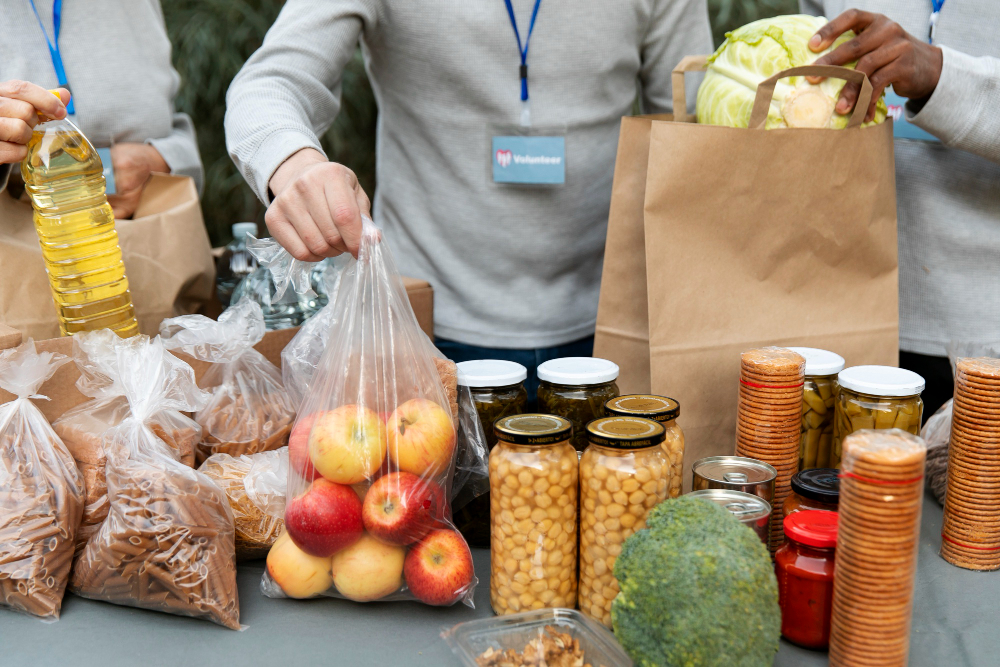In the maritime industry, the supply of provisions is a fundamental service that ensures the smooth operation of vessels at sea. Whether it’s for commercial cargo ships, cruise liners, or fishing vessels, the availability of essential supplies like food, water, and other necessities is vital to the well-being of the crew and the efficiency of the ship’s operations. In this blog, we will explore what provisions supply involves, why it is so important, and how it impacts the maritime sector.
What Is Provisions Supply?
Provisions supply refers to the process of delivering essential goods and supplies to ships, either while docked at port or during their journey at sea. These supplies include food, beverages, water, fuel, and other basic necessities required for the daily operations of the ship and the health and safety of its crew.
The provision of supplies is carefully managed to meet the needs of the crew for the duration of their voyage, ensuring they have sufficient resources to handle both expected and unforeseen challenges, such as extended trips due to bad weather or mechanical failures.
Types of Provisions Supplied
- Food and Beverages: Ensuring that crews have access to nutritious meals is essential for maintaining their health and morale. The provisions include a variety of fresh, frozen, and canned foods, as well as beverages such as water, soft drinks, and sometimes alcoholic drinks for specific vessel types.
- Fresh Water: Fresh water is one of the most critical provisions. It is used for drinking, cooking, cleaning, and hygiene. Ships often carry large tanks of fresh water, but it must be replenished at regular intervals.
- Medical Supplies: Provisions also include a stock of medical supplies, such as first-aid kits, medications, and emergency medical equipment. These are crucial, especially for long journeys where immediate access to medical facilities may not be possible.
- Household Items: This includes basic hygiene products like soap, detergents, toilet paper, and linens that are necessary for maintaining cleanliness and comfort on the ship.
- Specialized Items: Depending on the type of ship, certain specialized provisions might be required. For example, fishing vessels may require bait, while cruise liners need an abundant stock of luxury food and drink items to satisfy passengers.
The Importance of Provisions Supply
- Crew Health and Well-being: A well-nourished and healthy crew is critical for the efficient operation of any ship. Regular, balanced meals help maintain the physical and mental health of the crew, ensuring they remain alert and capable of handling the daily challenges of working at sea.
- Operational Efficiency: Provisions supply directly affects the efficiency of a vessel. Ships that are well-stocked are less likely to face delays or disruptions caused by lack of resources. If a ship runs out of essential supplies like food or water, it may be forced to divert to an unscheduled port, causing costly delays.
- Compliance with International Regulations: The International Maritime Organization (IMO) has strict guidelines on the provision of supplies aboard ships, particularly for water and food. These regulations ensure that vessels meet basic standards for the health and safety of their crews, and non-compliance can result in hefty fines or other penalties.
- Handling Unforeseen Circumstances: At sea, unpredictable situations such as storms, mechanical breakdowns, or route diversions can extend the duration of a voyage. Having adequate provisions on board ensures that the crew can continue their journey safely, even in the face of these challenges.
- Passenger Satisfaction: For cruise ships, the supply of high-quality provisions, including gourmet food and luxurious amenities, is vital for passenger satisfaction. A shortage of food or poor-quality provisions can result in negative experiences and damage the reputation of the cruise line.
Challenges in Provisions Supply
- Logistical Complexity: Coordinating the supply of provisions to ships requires careful planning and coordination, especially when multiple ships arrive in a port at the same time. Each vessel has its unique requirements based on the number of crew members, type of journey, and specific cargo it carries.
- Perishable Goods: Supplying fresh food can be challenging, especially for long voyages. Provisions must be carefully managed to prevent spoilage, and ships often rely on a combination of fresh, frozen, and non-perishable items to sustain the crew for extended periods.
- Environmental Factors: Weather conditions can delay the arrival of provisions, either in port or when delivering supplies at sea. The suppliers must plan accordingly, ensuring that there are buffer stocks available to handle such delays.
- Cost Management: The cost of supplying provisions can be substantial, particularly for large vessels or cruise liners. Balancing quality, quantity, and cost-effectiveness is a constant challenge for provision suppliers and shipping companies alike.
Conclusion
Provisions supply is a critical service in the maritime industry, ensuring that vessels are stocked with essential goods to support the well-being of their crews and passengers. Whether it’s providing fresh water, nutritious food, or necessary medical supplies, provisions are key to the success and safety of any maritime voyage.
Effective provisions supply not only supports compliance with international regulations but also boosts operational efficiency and crew morale, ultimately helping vessels meet their goals while minimizing disruptions. Investing in quality provisioning services ensures that ships are always ready for the challenges of the open sea, keeping the maritime industry moving smoothly and safely.









